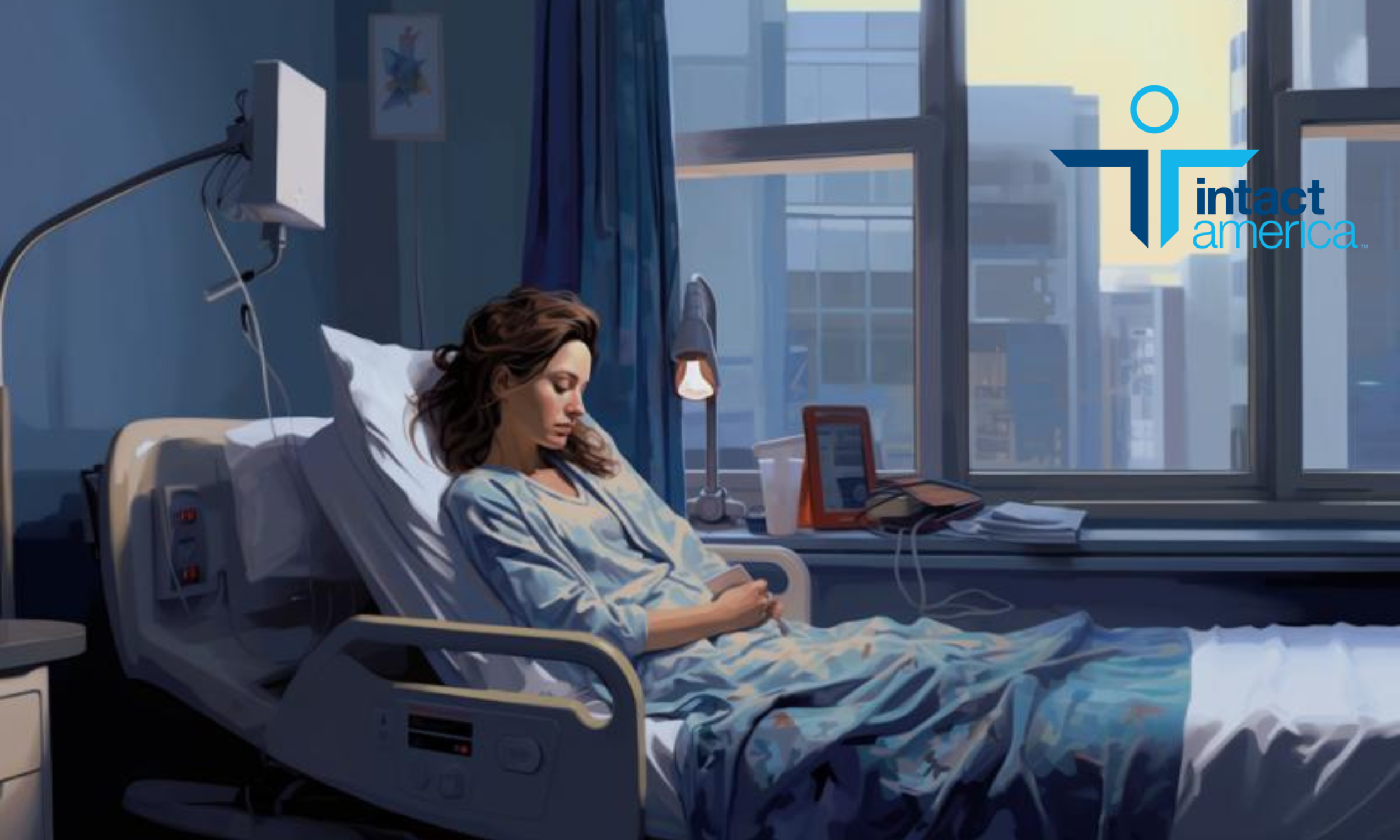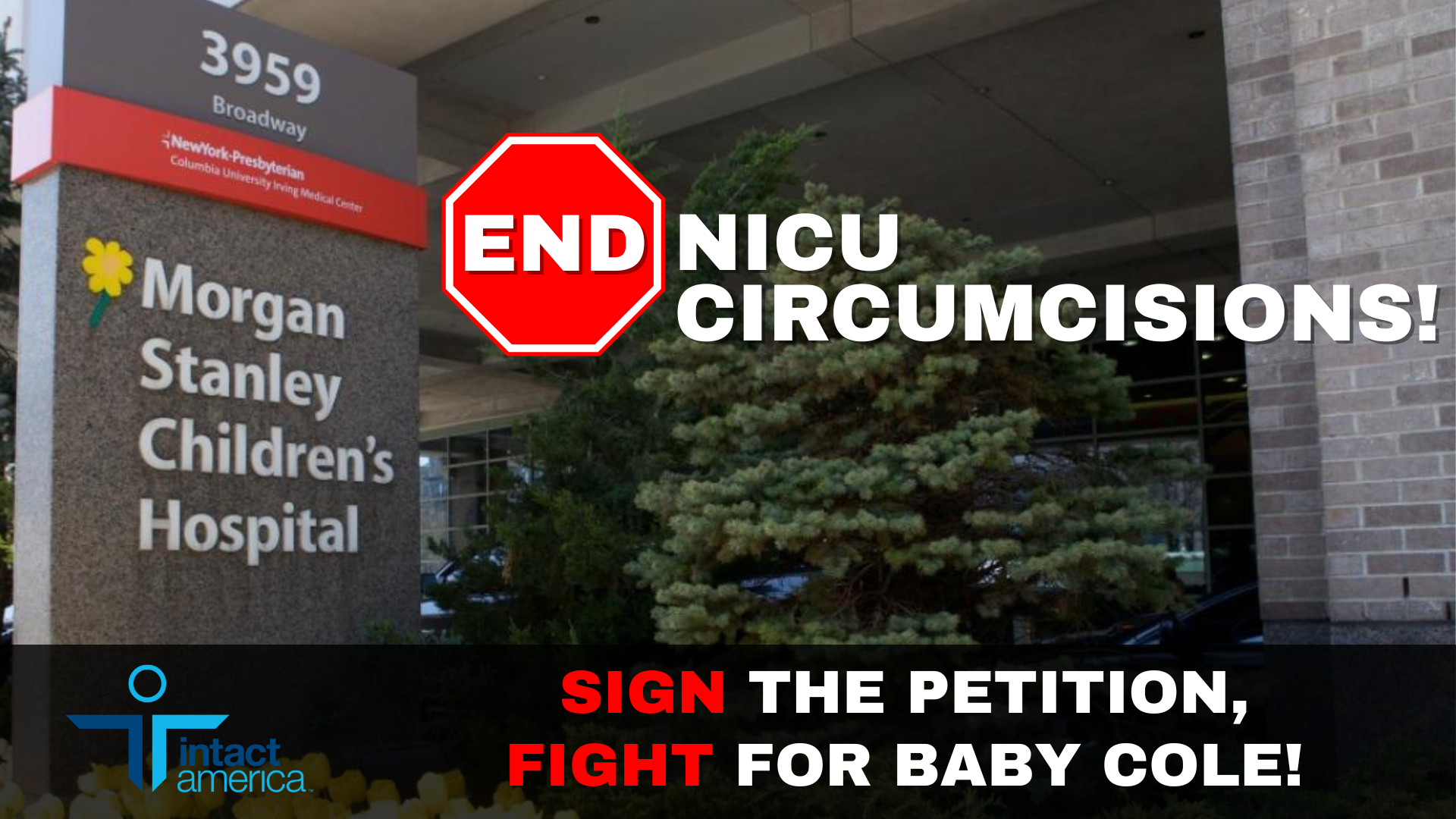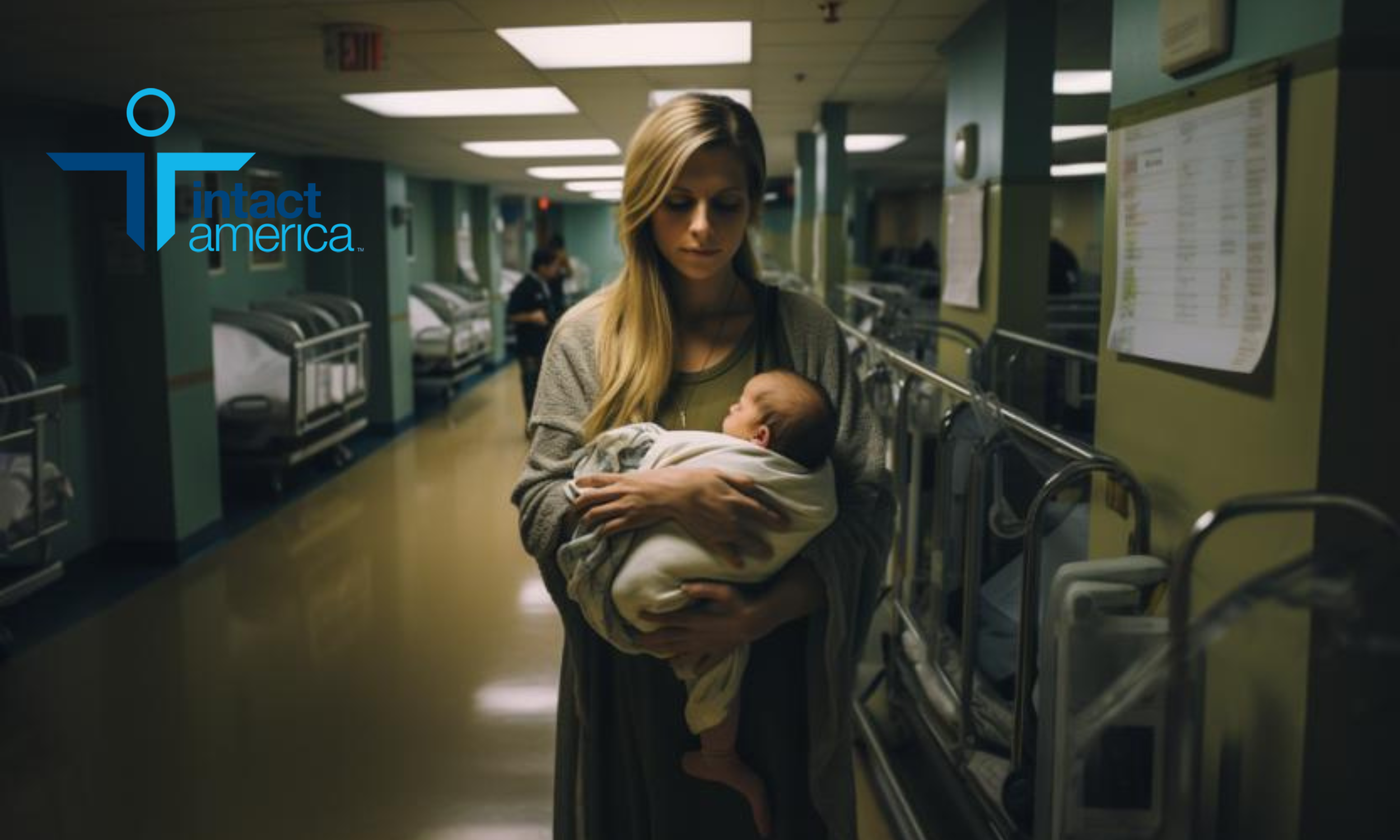
Circumcision has long been debated. However, amidst this ongoing discourse, a group that is rarely discussed is the “Regret Moms,” mothers who grapple with profound grief and guilt after choosing to circumcise their sons. This article aims to shed light on their emotional journey, exploring these women’s experiences and challenges. Through their narratives, we are prompted to reflect on the broader implications for society and culture and to raise important questions about informed consent, bodily autonomy, and the need for open dialogue on this sensitive topic. Join us as we look into these thought-provoking stories, raise awareness, foster understanding, and look to end male circumcision.
The Decision to Circumcise
“One tactic to perpetuate circumcision is to scare nervous new parents into having their infants, who are vulnerable and too young to resist, circumcised. The solicitation of the procedure by doctors and hospitals is ubiquitous across the USA.” — Yale Law School
For many mothers, the decision to undergo circumcision is often rooted in long-standing family or religious traditions that have been passed down through generations. Others may seek guidance from medical professionals, considering potential health benefits or cultural norms prevalent in their society. These personal narratives from diverse mothers shed light on their unique journeys, emphasizing the significance and weight of this decision. It is important to acknowledge that, despite careful consideration, there is typically a lack of comprehensive information and understanding regarding the full implications of the procedure. To make an informed decision, gathering as much knowledge as possible and engaging in open and transparent discussions with healthcare professionals and trusted sources is crucial. By doing so, we can empower ourselves and advocate for informed choices.
It’s important to operate assuming that most mothers want what is best for their sons; however, the facts are often deliberately concealed.
Did you know:
- The circumcision procedure can lead to scarring around the surgical site, which may be aesthetically displeasing to some individuals.
- Some individuals may experience psychological distress or negative feelings related to their circumcision experience.
- Complications such as skin bridges or excess skin removal (we argue that any skin removal is excessive and is an assault on the individual and the natural penis) can occur during the so-called healing process.
The Aftermath of the Circumcision Decision
The decision to circumcise a child can have profound long-term consequences for both the child and the mother. During this critical period, infants endure physical discomfort and distress, including pain, swelling, and bleeding, which can be unsettling for both the baby and the mother. Additionally, the emotional toll on the mother, encompassing feelings of guilt, anxiety, and sadness, cannot be underestimated. The mother may face challenges in tending to the wound and ensuring proper healing, further complicating the situation. Moreover, complications or unforeseen outcomes, such as infections or scarring, can intensify the mother’s regret and unease.
“Since I became involved in the movement to stop the genital cutting of baby boys, I have heard many maternal remorse and child anger stories. Mothers have called into radio programs where I was a guest, sobbing from grief and regret about having allowed their baby to be circumcised; some of these have been the mothers of toddlers, but many are recounting stories from 15, 20 or even 40 years earlier. For every one of these mothers, there is a son – a boy or man living with the consequences of a decision he did not make but that is imprinted on his body and in his brain forever. And I have talked to hundreds, maybe even thousands, of such sons.” — Georganne Chapin, Voices Column
Marilyn Milos, the “mother of the intact movement,” has said that of all the questions she has been asked about circumcision, the most difficult one to answer is how to heal from making the decision to circumcise a son and later regretting it.
“Mothers consent to circumcision out of the best intentions and the worst kind of ignorance. Circumcision is a cultural practice; most doctors do not provide adequate information to give informed consent, and no one talks about it, so we don’t even know enough to ask the right questions. When we find out what happened to our precious baby behind closed doors, most mothers feel deep regret and profound sorrow.”
Emotional Trauma and Grief of Regret Moms
The emotional trauma a mother can endure after her son is circumcised often stems from the intricate interplay of societal pressures, cultural norms, and personal beliefs that pressured her into making that decision.
Feelings of regret and loss experienced by these mothers are common. They may grapple with deep sadness, mourning the loss of their child’s intact body. Furthermore, their immediate surroundings’ lack of support and understanding can intensify these emotions, leaving them isolated and alone.
Educating themselves and others about circumcision has become a crucial aspect of the healing journey for many regret moms. By equipping themselves with knowledge, these mothers can make more informed decisions in the future and advocate for their choices with confidence. This newfound understanding empowers them to challenge societal norms and promote a more inclusive and compassionate approach to circumcision.
Ultimately, this journey of coping and understanding can be a pivotal step in processing their emotions and finding a path to healing and acceptance. It is a testament to the resilience and strength of these mothers as they navigate the complex terrain of parenthood, guided by their unwavering love for their children and their commitment to making choices that align with their values and beliefs.
Finding Support and Healing as A Regret Mom
From an anti-circumcision standpoint, discovering support and healing is a vital and transformative step for Regret Moms. These incredibly brave mothers navigate a complex emotional journey and yearn for understanding and solace. Fortunately, numerous resources and support systems are available to assist them on their path toward healing.
Dedicated online forums provide a secure and empathetic space for ‘Regret Moms’ to share their stories, connect with others who have undergone similar situations, and receive invaluable emotional support. These forums create a sense of belonging and serve as a collective healing and empowerment platform.
In addition to online forums, support groups offer a more intimate setting where ‘Regret Moms’ can engage in face-to-face discussions and connect on a deeper level. These groups allow mothers to express their emotions freely, seek guidance from experienced individuals, and find solace in knowing they are not alone.
Counseling services specializing in post-circumcision, regret, and grief play a pivotal role in healing. These professionals offer personalized guidance and therapeutic interventions to help Regret Moms process their emotions, work through their grief, and find a path toward acceptance and healing. By providing a compassionate and nonjudgmental environment, these counselors empower mothers to embrace their experiences and embark on a transformative journey of self-discovery.
Ultimately, the power of community cannot be underestimated in the healing process. Online forums and social media groups dedicated to Regret Moms offer a supportive network where mothers can share their experiences, find validation, and receive emotional support from individuals who truly understand their struggles. These communities become a source of strength and resilience, enabling Regret Moms to navigate their emotions, find acceptance, and embark on a journey toward healing.
Raising Awareness and Advocacy
To spread the anti-circumcision perspective, raising awareness and advocating for educating parents about the potential implications of circumcision are vital. Activists and organizations are deeply committed to sharing comprehensive information highlighting the procedure’s physical and psychological impacts.
There is an increasing demand for healthcare providers to offer transparent and comprehensive counseling sessions, equipping parents with the necessary knowledge to make truly informed decisions.
Moreover, ‘Regret Moms’ voices resonate strongly as they share their experiences with new or expecting parents, providing invaluable firsthand insights and guidance. These collective efforts aim to foster a more informed understanding of circumcision and its potential consequences, ultimately empowering parents to make thoughtful choices for their children’s well-being.
As Milos says, “We can’t take back our grievous mistake, but we can do everything in our power to protect our sons in the future. We can apologize to our sons and end the wounding in our families. When parents become informed, they will spare future sons from the pain and trauma of circumcision. Tell your story to anyone and everyone who will listen.







James Okoriji
June 12, 2024 2:52 amI am not a regret mom but I am a man who was mutilated as a baby. I feel that the mothers who have the empathy and common sense to acknowledge that they regret that they mutilated their babies with so little knowledge of the subject prior to doing so and/or due to societal pressures is notable. Most people have been conditioned into thinking that their own needless enslavement or even the ruination of them , their peoples, and their cultures was somehow ‘good’ for them. And many more understand this nonsensical ruination and just lay down and accept it! Some even assent it! Just look at most of human history… These regretful mothers are cut from a different cloth clearly.
I feel that the strength of these women is nearly as gargantuan as the mutilated children who suffer needlessly as a result of this archaic butchery and choose to spread information to end these cycles of suffering. And this is a publicly commendable feat in my opinion.
Liam
November 30, 2025 2:42 amWhile putting this in their perspective is necessary to bridge the gap, please stop making it about anyone and everyone else other than the person who was subjected to genital mutilation.